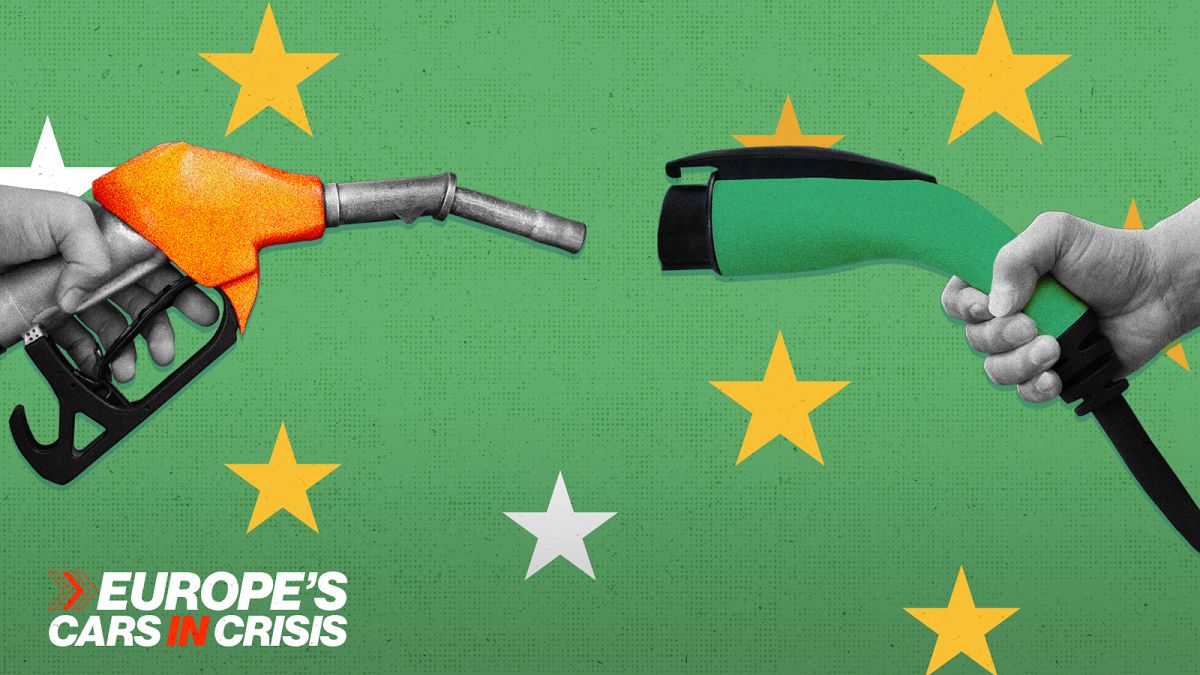By Euronews
Published on
As EU industry chief Stéphane Séjourné said recently in his stark warning, Europe’s auto industry is “in mortal danger”.
Stuttering sales, high energy prices, growing global competition and an uncertain regulatory and trade environment have plunged the sector into a spiralling crisis.
To address the most pressing challenges, EU Commission President Ursula von der Leyen will host senior automotive executives in Brussels on Friday for crash talks.
It’s the third and final crisis meeting of its kind this year, part of what the Commission has billed the “Strategic Dialogue on the Future of the Automotive Industry.”
But can crisis talks like this avert the catastrophe many industry figures have warned about, or is Europe’s role in global car manufacturing over?
Euronews spoke to Ole Källenius, president of the European Automobile Manufacturers’ Association (ACEA) and CEO of Mercedes-Benz, who shared his thoughts on the three most important questions around the continent’s automotive industry and its future.
Euronews: Is the automotive industry asking for a reversal of EU emissions targets?
Ole Källenius: We are fully committed to the goal of zero emissions – but there is a better way to get there.
No one has a greater interest in the success of electric cars than the European automotive industry.
We, as manufacturers, have already poured hundreds of billions into investments and brought hundreds of zero-emission models to market.
However, the world has evolved, and policy and legislation need to evolve, too.
That’s why we are advocating for a pragmatic recalibration of the CO₂ reduction path.
This isn’t about abandoning our goals, but rather aligning them with the current market realities, economic conditions, and geopolitical landscape.
Euronews: What factors are slowing down the transition to green mobility?
Källenius: What we need in the current situation are strong enabling measures, including robust charging infrastructure, meaningful consumer incentives and significant upgrades to our energy grids.
Additionally, high electricity and energy costs must come down significantly, as they directly impact the attractiveness and accessibility of electric mobility for the average consumer.
These are not trivial issues; they are systemic challenges that require a concerted effort from policymakers, energy providers, and the industry to truly unlock the full potential of electric mobility. We are ready to do our part, but the ecosystem must evolve in parallel.
Euronews: What is necessary to ensure a successful transition to green mobility?
Källenius: It begins with a holistic and pragmatic EU strategy, one that looks beyond mere CO2 targets to the bigger picture.
We need simpler, more flexible regulation, cutting red tape, recalibrating targets realistically, long-term, consistent incentives to drive consumer adoption, as well as allowing for technology neutrality.
Ultimately, climate policy must be integrated with the wider EU goals of ensuring competitiveness, job creation and strategic autonomy.

